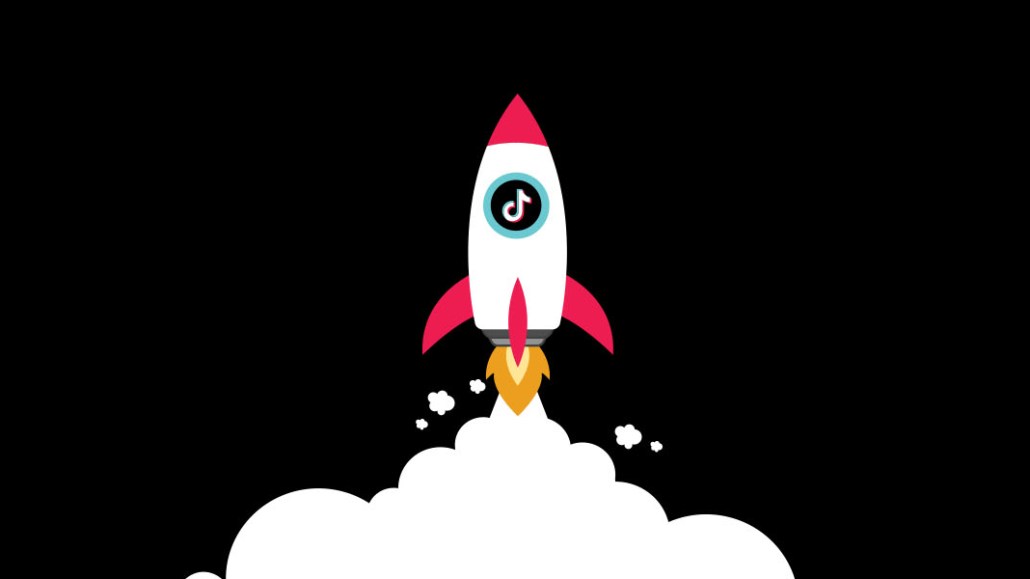Secure your place at the Digiday Media Buying Summit in Nashville, March 2-4
Billboard looks to sponsored TikTok strategy to help it become a more consumer-facing brand

Billboard is using TikTok to help develop the music-and-entertainment industry publication into a consumer-facing brand.
To do so, the Penske Media Corporation-owned publication rolled out a singing competition on TikTok on Sept. 28. Called Billboard NXT, the Samsung-sponsored competition features 12 contestants selected by Billboard’s editorial team from “hundreds of thousands of submissions” to the hashtag challenge, according to Billboard president Julian Holguin. Billboard did not say how many actually applied — or how contestants were selected for the competition.
The contestants are asked to use the new Samsung Galaxy Z Flip3 5G to edit and create videos for a series of weekly challenges. They are ranked on a custom Billboard chart that gives contestants points after every challenge. Eventually, three finalists will perform for an event that will stream live on Billboard.com. The winner will get their own music video and a print and digital cover of Billboard magazine.
“We wanted to make our own version of a competition series,” Holguin said. “Samsung came to us early over the summer to do it exclusively social-first.”
While Billboard did not say how much money it would make from the competition, the company said it is “a significant seven figure deal” with Samsung after it began talks with the brand over the summer. With roughly 602,000 followers on TikTok, Billboard has an eight-person social team that, along with the company’s brand experiences and editorial team, is overseeing the competition.
The singing competition is part of the recent big push in Billboard’s audience development strategy to create more consumer-facing programs. In August, the publication teamed up with electronics company Logitech to ideate a monthly chart that ranks creators on social media who contributed to getting songs to trend and wind up on big charts like the Billboard Hot 100.
Billboard is likely to find more success reaching non-industry audiences, such as young adults, on platforms like TikTok than trying to push those people to its own properties, according to independent media consultant Brad Adgate. “You’d be hard pressed to think of a better media strategy than going on TikTok… It wouldn’t surprise me if in a few months [this competition] is more popular than the TV Billboard Music Awards, because of the audience and the platform,” he said.
Billboard was “more like a trade publication” in the past, according to Adgate. But in the last decade or so, the publication has made an effort to create more consumer-facing content, with video series and live events such as music festivals for music fans, “to become the hybrid brand that we are today,” Holguin said. (Billboard’s Latin Music Week held in September brought in “eight figures in revenue,” up 300% from its most successful event in 2018, according to Holguin, who did not provide exact figures.) The creator economy has driven significant interest in the music business, he added, as fans follow talented, unsigned music artists on their journey through the industry via social media.
While Samsung’s sponsorship of the singing competition is “driving some revenue,” if this competition “goes well, it’s an [intellectual property] licensing opportunity,” Holguin said. That could mean Billboard singing competitions end up on streaming platforms, broadcast TV or a live event with streaming components, he suggested, without saying how that IP would support the competitors. “This year we will learn a lot and figure out where this could all go,” Holguin said.
Beyond TikTok, Billboard is emphasizing building up its video portfolio. Starting this December, the publication will change its approach to magazine cover stories by converting them into video-first projects.
While previously a writer would sit down to do an interview with the featured person off-camera, and then they would do a scheduled photo shoot with behind-the-scenes video, that kind of content “does not necessarily move the needle as much as it once did… because social media is entirely a behind-the-scenes ecosystem,” Holguin said. Going forward, Billboard will “prioritize video as the format of choice,” he said. Interviews will be conducted on camera. Headlines will now be the theme of what he described as a “mini documentary,” with articles and photoshoots spawning from the video shot.
“Obviously we can’t move away from text-driven content,” Holguin said. “We are not sacrificing anything by taking this approach, but we are modernizing how we approach our cover shoots.”
This article has been updated to restore a portion of a quote that was removed before publication and that said Samsung had approached Billboard about the singing competition.
More in Media

From feeds to streets: How mega influencer Haley Baylee is diversifying beyond platform algorithms
Kalil is partnering with LinkNYC to take her social media content into the real world and the streets of NYC.

‘A brand trip’: How the creator economy showed up at this year’s Super Bowl
Super Bowl 2026 had more on-the-ground brand activations and creator participation than ever, showcasing how it’s become a massive IRL moment for the creator economy.

Media Briefing: Turning scraped content into paid assets — Amazon and Microsoft build AI marketplaces
Amazon plans an AI content marketplace to join Microsoft’s efforts and pay publishers — but it relies on AI com stop scraping for free.








